You are NOT required to sign:
‘HIPAA Privacy Form’ or ‘Notice of Privacy Practices’
Acknowledgement of Receipt Statement
Myths and Facts:
MYTH: HIPAA protects your medical privacy.
FACT: HIPAA eliminated patient consent requirements and permitted up to 2.2 million entities, plus government agencies, to access your medical records without your consent if those who hold your data (e.g. clinic, hospital, lab, nursing home, health plan) choose to share it.
MYTH: Signing the form or the “Notice of Privacy Practices” (NPP) acknowledgment statement means your medical information will be kept private.
FACT: The NPP acknowledgement statement is only an acknowledgement that you have read, received, or understood the NPP (which should be called a notice of disclosure practices) and therefore understand that you have no privacy rights, and that your information can be broadly shared without your consent. If you read the NPP, you’ll realize that your signature acknowledges that you know you have no privacy.
MYTH: The federal HIPAA law and and its “privacy rule” are the highest laws of the land and have the final say on whether patient data can be shared or must be protected.
FACT: State medical privacy laws are the highest laws. The HIPAA law and rule say your data can be broadly shared — unless your state legislature has enacted a real, a more protective, state medical privacy law. The federal HIPAA “permissive sharing” rule is superceded by any state medical privacy laws, but most states have conformed to HIPAA because the legislatures do not realize that it does not protect patient privacy.
THE LAW DOES NOT REQUIRE YOU TO SIGN THE FORM
Click here or look below to see the exact section of the federal HIPAA privacy rule that only requires your clinic or hospital to make a good faith effort to obtain your signature on the form. They cannot require it.
See below for how to get your own HIPAA “not required to sign” cards to give to your clinic or hospital.
FIVE REASONS WHY YOU SHOULD NOT SIGN
1) Exercise your rights under the law.
2) Refuse to participate in perpetuating the deception that HIPAA protects your privacy.
3) Enlighten the clinic and hospital staff on the truth about HIPAA and your right not to sign.
4) Never sign a form by signing an electronic pad just because the staff says “It’s for HIPAA.”
5) Help CCHF restore patient consent and privacy rights across America
THEY STILL HAVE TO TREAT YOU
Take this federal document with you to show the clinic/hospital that they can’t deny treatment if you refuse to sign.
If you’re denied treatment, contact CCHF AND file a HIPAA complaint with HHS
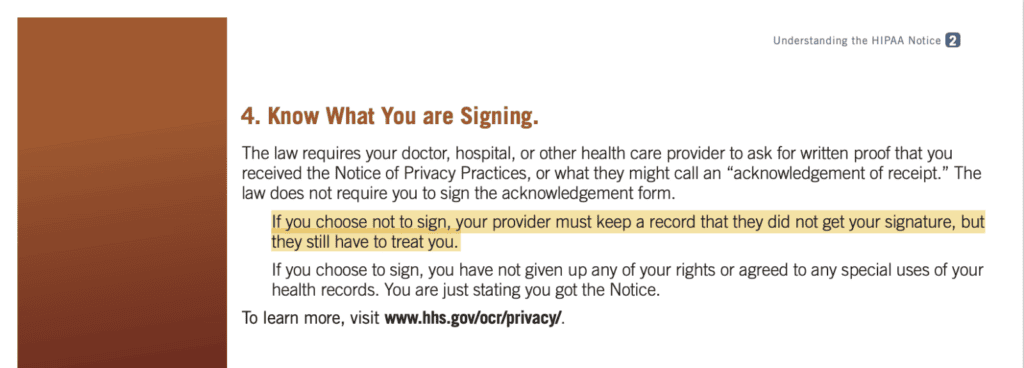
HIPAA HARMS
20 HIPAA HARMS: How HIPAA impacts patient privacy rights
The Health Insurance Portability and Accountability Act (HIPAA) was signed on
August 21, 1996. To show how little privacy you have, here are
USEFUL TOOLS AND INFORMATION
Submit Your HIPAA Story to CCHF
Federal HIPAA law (1996) and rule (2003)
Click here for a printable one-page flyer to share with others – “HIPAA: The Grand Deception“
For 12 personal stories of those who refused, see our report: The HIPAA Privacy Deception
Click here to file a complaint if you feel your health information privacy rights were violated: HHS OCR
Click here to view the GRAPHIC showing the CMS process for processing HIPAA complaints
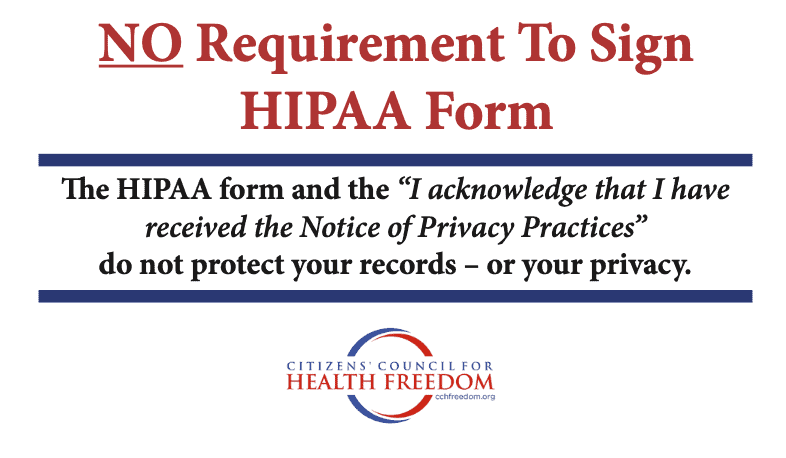
HHS.gov says that you don’t have to sign the NPP acknowledgment statement. See red arrow added by CCHF below from HHS website before later changes. Current website looks different but concurs.
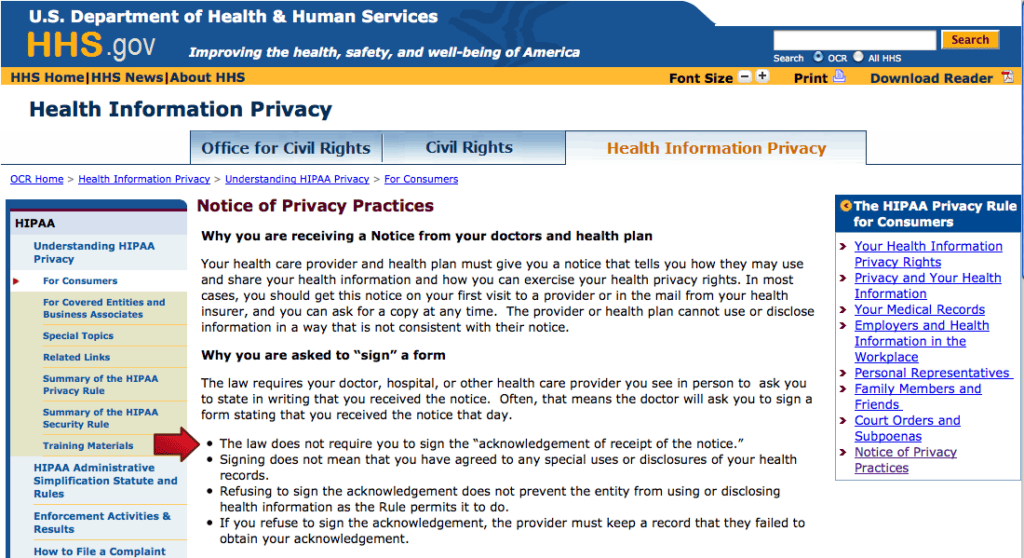
GOOD FAITH EFFORT — THE RULE: The federal privacy rule only requires that the clinic or hospital make a good faith effort to obtain your signature on the form. Your signature is not required and cannot be compelled. Although the following document was released in October 2002 prior to the April 14, 2003 effectiveness date, this language remains in effect. It has not been altered over time:
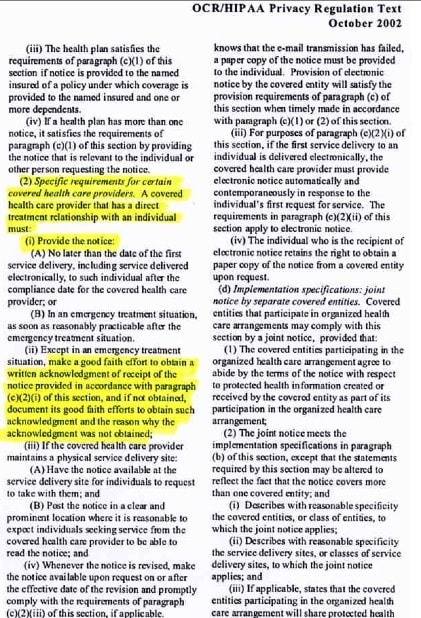
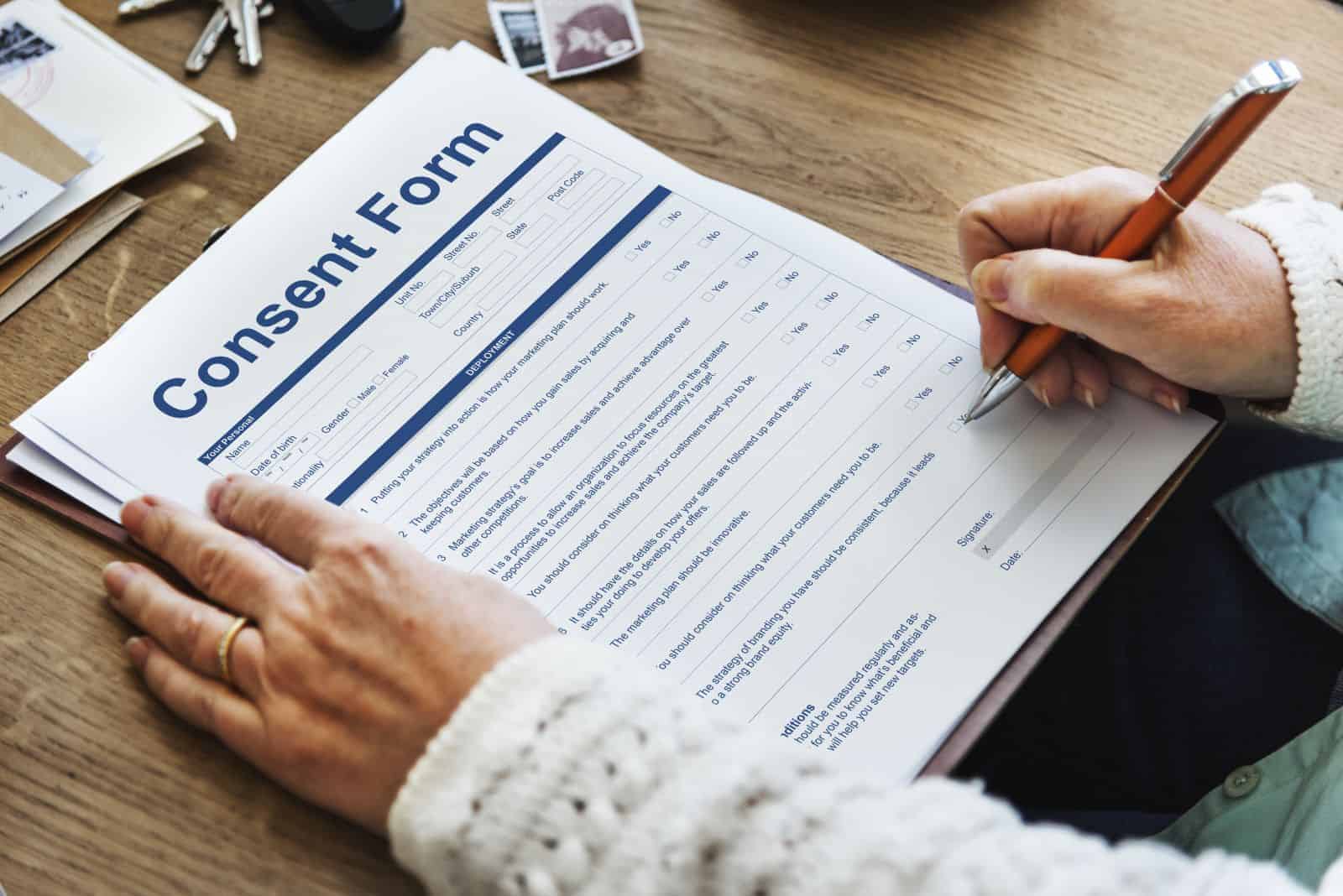
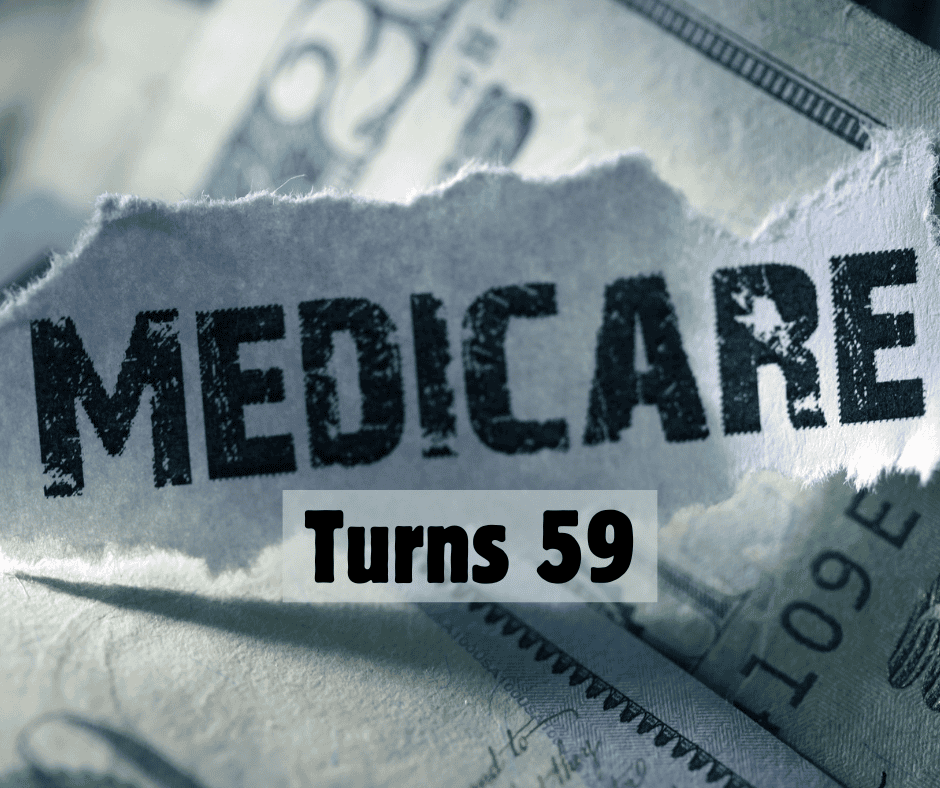



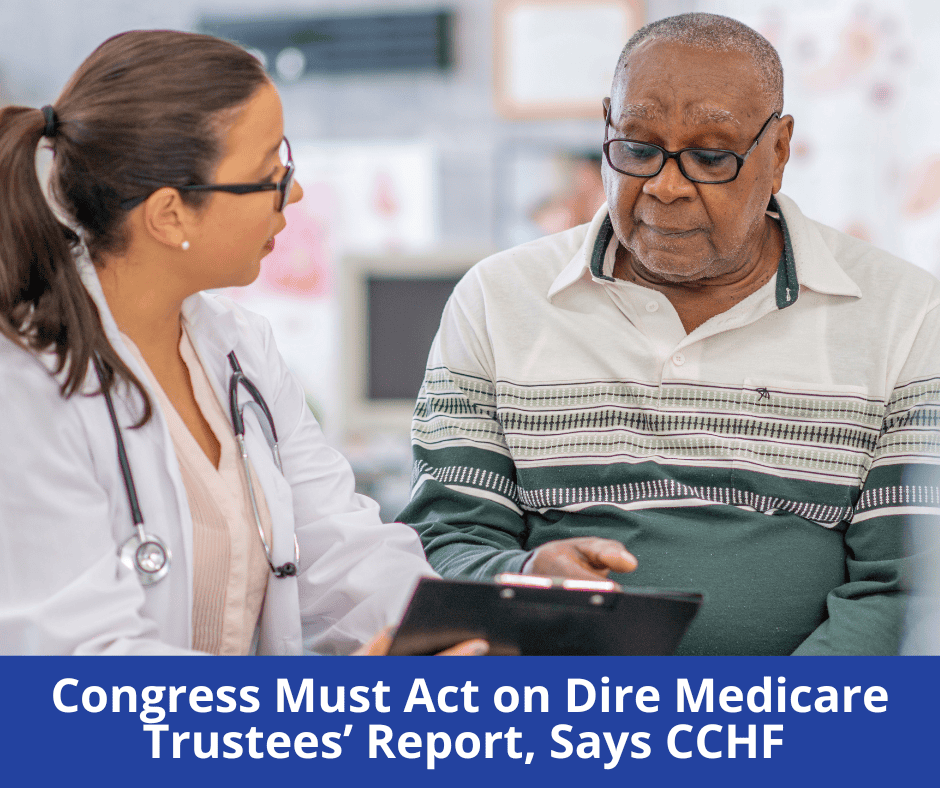


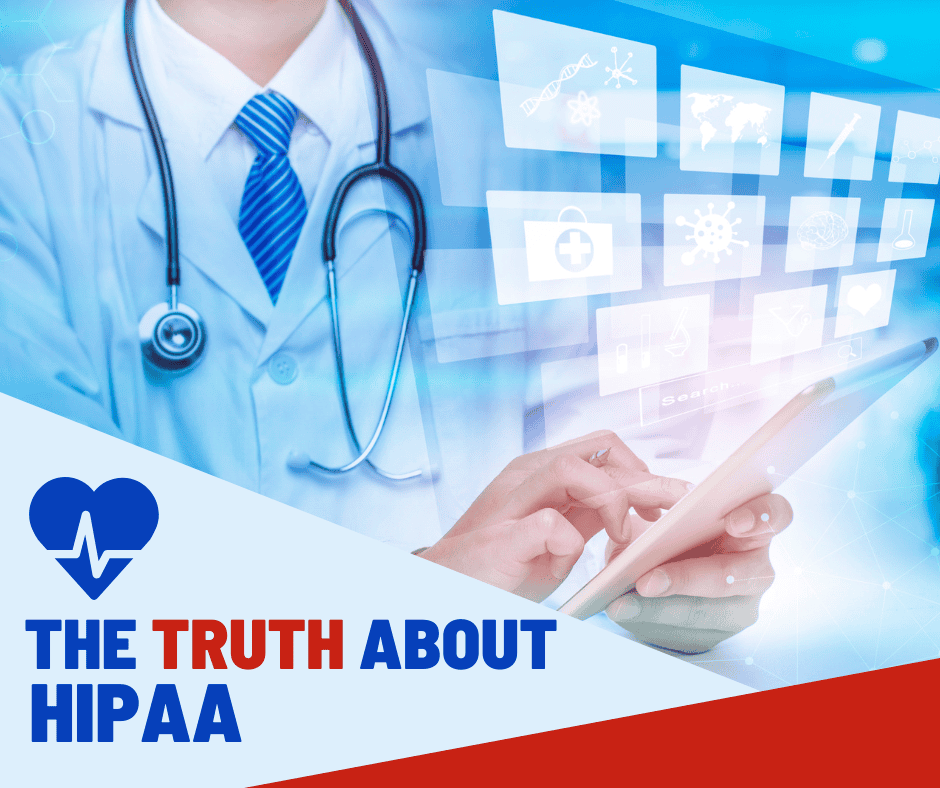
Saving Grace, Good News, and Medicare’s 59th Anniversary